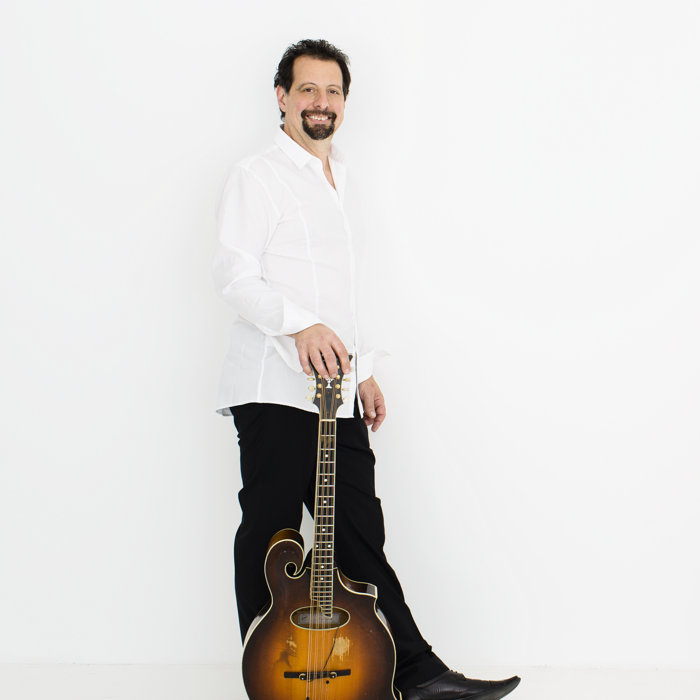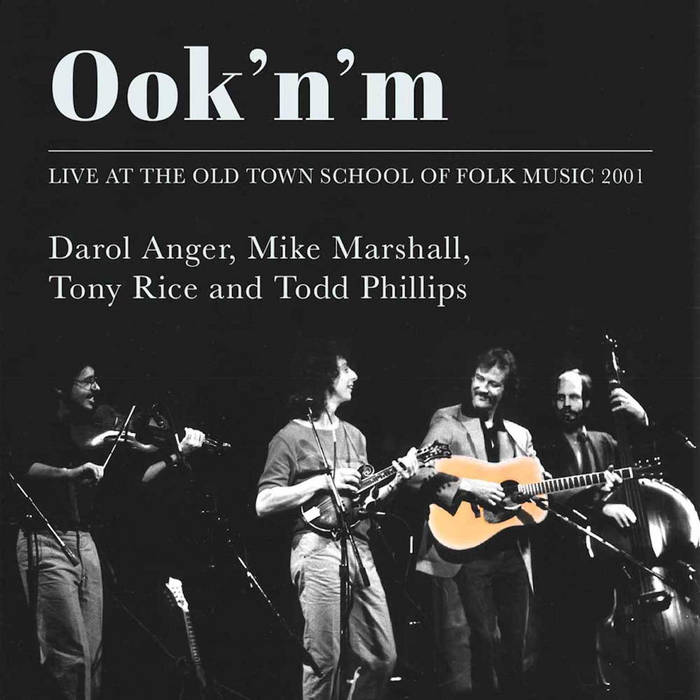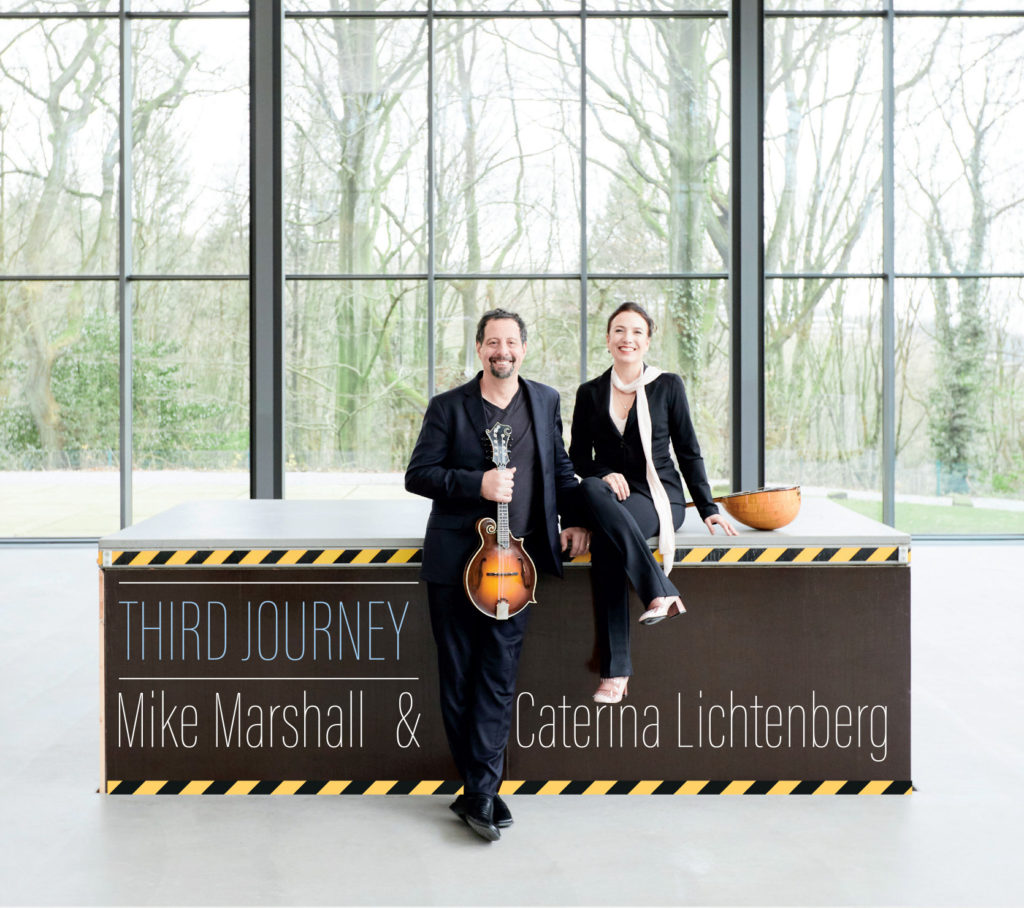SERIES: INTERVIEWS WITH PERFORMING MUSICIANS – Mike Marshall (Part 3 of 4)
November 21st, 2010 | Author: Vicki Ambinder
Here is the third installment of my four-part interview with multi-instrumentalist, world-touring musician, prolific record producer, and Adventure Music recording artist Mike Marshall. You can find additional information about Mike at the beginning of the first installment. The final installment of our conversation will be posted in one week. –VA
Is there a difference between the person you are when you’re getting ready to walk on the stage and the person you are when you’re on the stage? Are you aware of anything that’s different, or a heightened sense, or anything like that?
Mike Marshall: Well, certainly a heightened sense. Adrenaline kicks in, and I love that focus, I love the feeling of, “Ok, we’re gonna go do this – let’s go!” and how it focuses your attention into this beam of light on the music and you have to be totally there, and of course juggling all the balls, but also focused. Yeah, it’s a wonderful feeling to feel it coming on.
Do you feel that there are things you do differently now as a performer than when you were first coming up? Like, is your philosophy different, or is the way you present yourself different?
MM: You know, I think it’s more about being old enough to totally relax. And having played so much music for so many different kinds of people, in so many countries and different venues, that I feel a certain kind of confidence that everything’s going to be ok, and that I can find a way to communicate with that crowd and help them come along on this journey, this two-hour journey that we’re going to do. So probably the main thing that’s changed is the relaxed feeling.
Do you ever get in situations where there’s just too much of a train wreck and you just can’t get past it, or do you feel like that’s not even an issue for you?
MM: Are you talking about in a show, where the show is just dying?
Yeah.
MM: No. You know, I don’t perform in situations where that’s possibly going to happen. I mean, the people I choose to play with, the kinds of venues I choose to play, I’m in a really lucky spot now where that doesn’t happen. I mean, I might end up in a jam somewhere where everybody’s getting onstage and it just turns into bedlam, but it’s not my show.
Yeah, like those festval jams at the end of the night.
MM: Some of those are cool – Sam Bush getting everybody up there – but you know what that is, so you go in with those expectations. It’s a photo op more than anything. You really don’t need 12 guys chopping backbeats on “Salty Dog Blues”, but let’s do it anyway!
Now, I know that you’re into cooking, and I was thinking about cooking as a performance art, and also cooking as a sort of shared experience, and that has a lot in common with music, it seems.
MM: I’m very mixed about that. I’ve been getting kind of bummed out lately – I don’t have a TV, so I’m kind of disconnected with the Food Network, but every once in a while I’ll put it on in the hotel, and they’re starting to turn cooking into a sporting event, like a boxing match.
Oh, definitely. But I’m thinking more in terms of cooking for your friends.
MM: Right, and I was just going to say, that totally flies in the face of the whole reason I love it, and the kinds of experiences I want to have are of the shared experience of people being together. And yes, I want to get better and better at my craft, and I love it when people swoon, but I’m learning that that’s not necessarily the focus of the night – that the focus should be on the people being together. We need that so badly in our society that I don’t want to turn this thing around. I get to do my “show” when I play the mando.
But I think there are things in common in terms of, you have a skill set, and you improvise…
MM: There’s no question that there’s tons of overlap.
…you have taste, you have sensibility…
MM: You have tradition that you’re drawing from, but you also have experimentation and invention, and you have balance of flavors and textures. And you have the flow of the night. That’s sort of the final challenge that I’m struggling with. I hang out with some really great chefs. I don’t know whether you’ve read some of my bio where I’ve traded lessons with the guy from Chez Panisse [Michael Peternell]?
Yes, sure.
MM: Well, now we’re like best friends, and we get together a couple times a week with our families, and it’s just ridiculous. And this is him cooking home-cooking – he’s not doing giant soufflés and flaming things, he’s just cooking up a pasta, you know?
Which is sublime, I’m sure.
MM: Oh god, what he can do! What’s really inspiring and a big challenge for me now is to really understand the timing of an evening, and how to control that and yet be relaxed.
A lot like music, huh?
MM: Yeah, it’s the same thing we do when we play. We’ve got all these years of experience of doing it – which he has with food.
Do you find that it informs you as a musician, what you’re learning, trying to learn this skill and how to put it all together?
MM: Absolutely. I think anything you do reflects back into your music-making, and it’s completely connected. It’s all probably just vibrational stuff, you know? Painting is vibration because it’s color, and probably taste is, too. And the arc of an evening has a rhythm to it. It’s all part of the same stuff, I’m sure – not to be too New Age-y about it! I’m really interested in this idea of tradition, though. Because I think as musicians, it’s easy to get sort of caught up in the “right” way to do something, and I’m always shining a light on the fact that Bill Monroe – even though we think of him as iconic and the end of the story for bluegrass – that he was the most inventive and most creative of all the bluegrass musicians, and created something completely new for us, and combined things that had never been thrown together. And now there’s this idea that you have to play it a certain way, and I think there’s a danger in going there.
I mean, I appreciate people studying and doing their homework, and I hate it when they don’t, for sure – and in cooking, there’s a lot of relationships there, because you have something called “Italian food”, and it’s iconic. If you’re going to make a pesto, it has to have this and that and the other, and if you’re going to do food from this region it cannot have these ingredients. And that’s kind of B.S., in a way, because Italians didn’t discover the tomato until 1492 – or the pepper, or corn, or the potato. So somewhere along the line, somebody went, “Whoa, this is cool – what can we do with this?” and got excited and combined this new ingredient with traditions from their region and ingredients from their region. So there was that invention spark. And I’m living my life in that, trying to find those moments where new things can come together and something really magical can happen. But of course the way I do that is to go back 300 years and study Bach!
You do a lot of producing, and you produce for young artists.
MM: Yeah.
And you’re out on the circuit, and young artists are watching you.
MM: Right.
And you’re passing along some traditions, and you’re imparting your words of wisdom. What kinds of things do you keep coming back to there?
MM: Well, I love this idea that I’m part of some continuum, this “passing down”. I studied from the people I studied from, and now there’s a generation coming up behind me. I’m very flattered by the fact that they seem to have learned some things that I’ve done. And yet I feel a part of them, and want to continue to play with them and be a part of that. I mean, we’re all young, we’re all old. I have as much fun playing with Alex [Hargreaves] and Paul [Kowert] as anybody I play with. And I’m inspired and learning from them now – now it’s going back the other way, because there are things that Alex Hargreaves does harmonically on the fiddle that I haven’t a clue. I mean, he studied some very deep shit, and not only studied it, but he understands it and it’s in him, it’s his harmonic language. And so I’m picking his brain now, you know? Enough about him telling me how important my CD was to him when he was 12. It’s like, let’s hang out and I’m going to point at your hands and go, “What the hell is that?” So it should go both ways, and I hope it continues to the end of my life, this idea of learning – I’m kind of obsessed with it.
And it’s kind of mentoring, in a way, too.
MM: Yeah, I mentor them, if not musically, perhaps things around how to arrange a piece. And all the experience I’ve had in the studio, I can help get through a recording session smoothly without people freaking out and keep the vibe nice – I’m a “vibe police” guy. And that only comes with experience – you can’t buy that in a bottle, you have to make all those mistakes. When people ask me to produce a CD, they ask, “What do you do?” And I want to tell them, “Well, I keep you from making all the mistakes I made.” When there’s a Y in the road, and they’re going, “Well, if we went this way it could be like this, and if we went that way it could be like this…”, I know to tell them, “No, don’t go down there – there’s briars and monsters and snakes…”
“…and craziness…”
MM: Yeah! But they don’t know that yet, you know?
And obviously they’re going to need to trust you along that line, although some people insist on making their own mistakes anyway.
MM: That’s true. I’ve had to walk away from a few and say, “Well, gee, I coulda told you…
“Don’t want to have to say I told you so, but…”
MM: Right, I know, it’ll help to do that. But this is the cooking thing, you know: “Mike, you’re such a good cook!” Well, if you had any idea how many times I’ve blown it – but from all those tiny moments of making mistakes comes the wisdom. Like those onions, if you can smell them, get them off, get them off! Don’t even turn them down – take the pan away.
Yeah, otherwise, everything’s just going to go downhill from here…
MM: Right!
To be continued…



